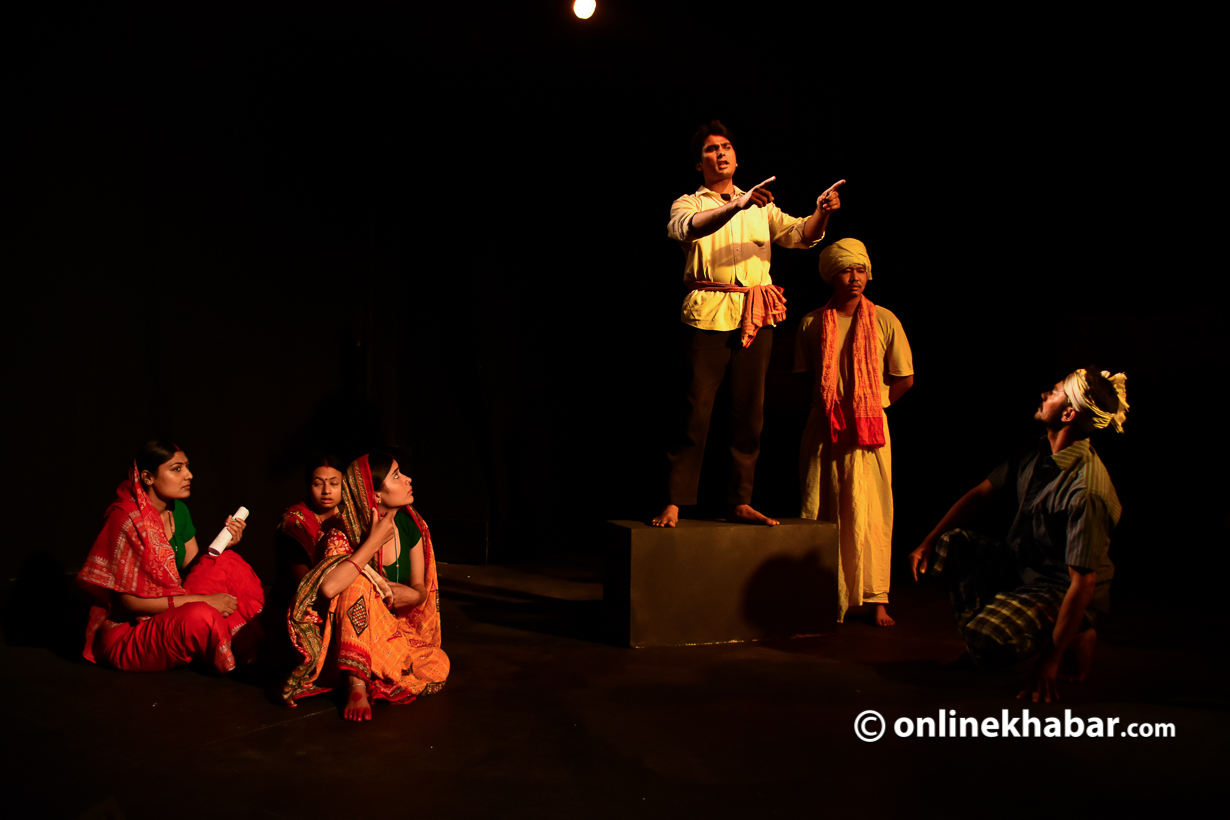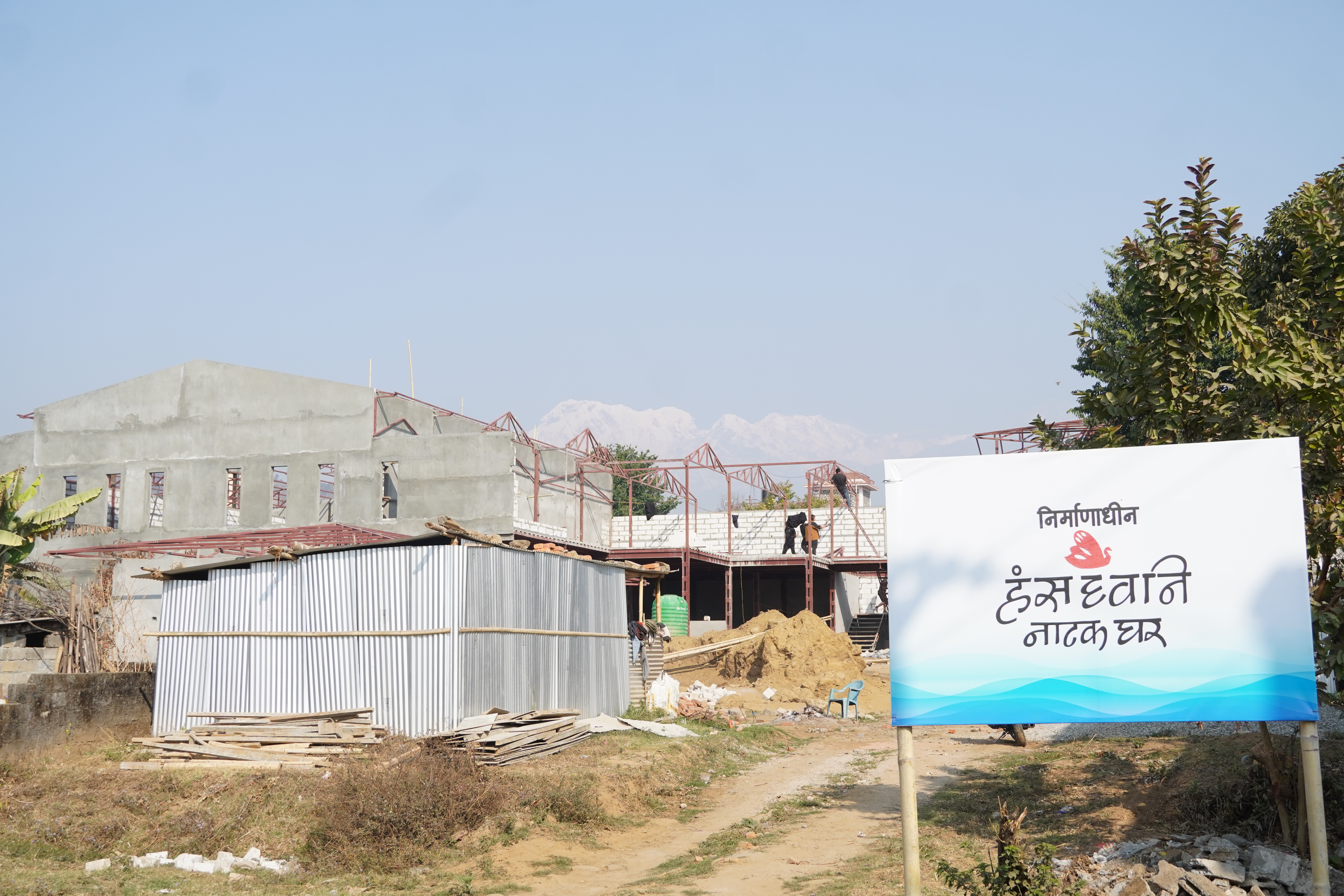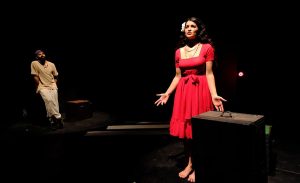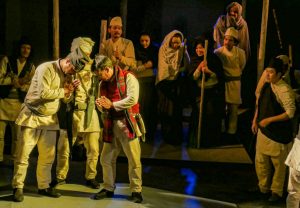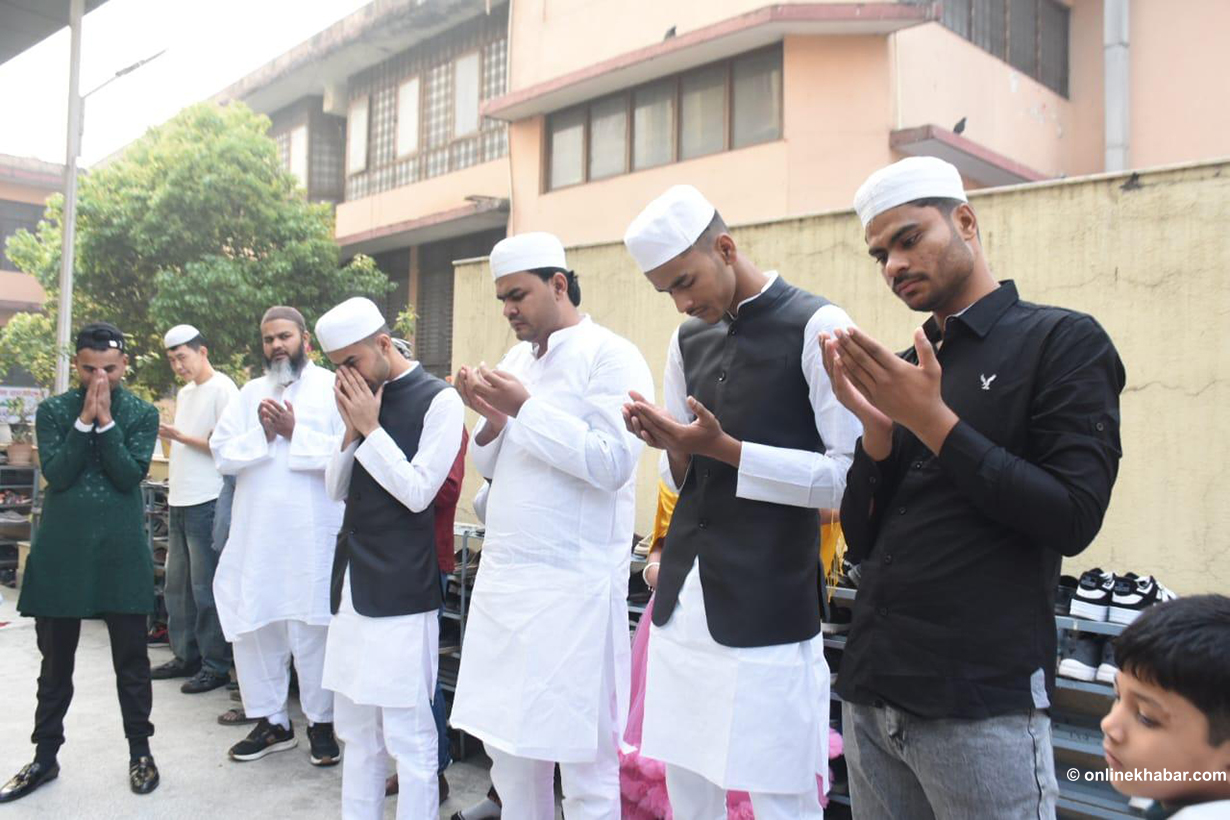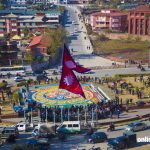The locals of Koreanpur, a place in Nepalgunj, are desperately waiting for the final results of the election. On the left side of the stage is a betel shop named Jalan Pan Pasal and around the stage are banners that read ‘Rajendar Babu Jindabaad’ and ‘Shanti Raja Jindabaad’. Rajendar Babu and Shanti Raja recently competed in an election and are waiting for the final result while the supporters of both the candidates are boasting about their sides.
This is how Ular being staged at Kausi Theatre, produced by Garden Theatre Production in collaboration with Katha Ghera, begins. The play directed by Che Shankar is an adaptation of the Nepali novel of the same title by Nayan Raj Pandey.
Pandey’s magnum opus was published 25 years ago. Yet, watching it enacted on the stage proves the novel still holds the strength to depict the struggle and sufferings of marginalised people.
Elections, bribes and leaders

Lately, the theatres of Kathmandu are very much vibrant as all of them are occupied with the plays. With the local elections around the corner, political themes have occupied the central stage as you just watched Teen Transit. Ular follows suit.
The one-and-a-half-hour play revolves around the story of Premlalwa, acted by Sabeer Churaute. He is a coachman who depends on his horse-pulled carriage for a living. His struggles start after he loses his horse, Basanti, during Shanti Raja’s electioneering. Now, he does not have a source of earnings. Seeking compensation, his journey goes through a lot of hardships that you watch during the play.
Premlalwa’s journey can be relatable to every individual, who has been ignored by their own representatives. The play exposes how the people’s representatives have been running away from their responsibilities and promises.
More particularly, Ular shows such ill practices are observed during the elections. Hence, at the end of the day, people still tend to vote for someone who bribes the voters with money and booze during the electioneering.
Diverse tastes

Ular goes through a setting that is usually seen in many parts of the Terai region. The setting keeps changing following every new scene. The actors smoothly manage to change the setting of the stage at the right pace. But, in one scene, unfortunately, they forget to remove a bench, and as a result, the protagonist collides with it.
Similarly, the play features the background music of various genres, from ragas and Indian classical beats to popular Bollywood numbers and Nepali sentimental songs. Though the play features various genres of songs, the makers have made each and every song perfectly contextual. For instance, when Basanti gets ill, Ular features a poignant raga in the background. Later, when Basanti dies, it features the choir version of Deep Shrestha’s sentimental song Har Raat Sapanima. All the choirs in the play are finely performed by the actors. Through those choirs, the actors have shown they are not only good at acting but singing too.
Since the play features the local language of the Terai region, some audience members, in some parts, may face difficulties in understanding the conversation. The language also includes local slang and some explicit words as well. Yet, overall, all of the actors have maintained the accent very well; they do not sound off and awkward in any place.
Lessons for leaders

Another protagonist, Draupadi, played by Sarita Giri, is presented as a very bold character. She is a sex worker and also a breadwinner of the family. Her character shows why people from the marginalised groups are irresponsible towards voting. They are very much sure that anyone coming into power would be indifferent towards their suffering.
As the date of the local elections is coming near, maybe all the leaders and candidates watch this play at least once. If they do, they can learn a lot of things from this beautiful piece of art.
Whatsoever, the play ends on a positive note. What happens, in the end, is beautiful; to know exactly what it is, visit the theatre and watch the show.
Ular will run through May 1 at 5:30 pm every day except Tuesday in Kausi Theatre, Teku. There will be an additional show on Saturday at 1:00 pm.



